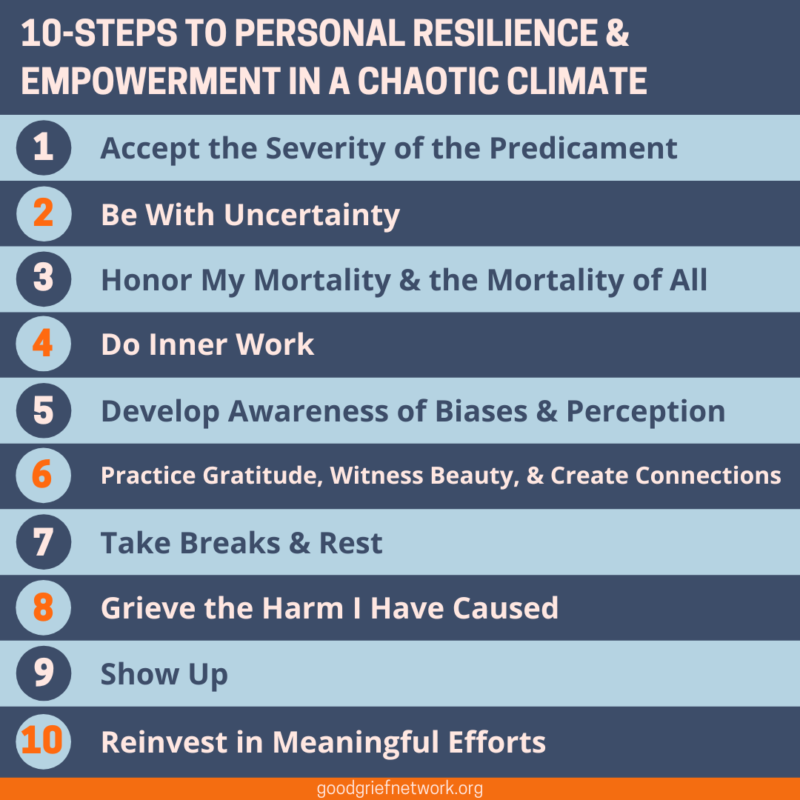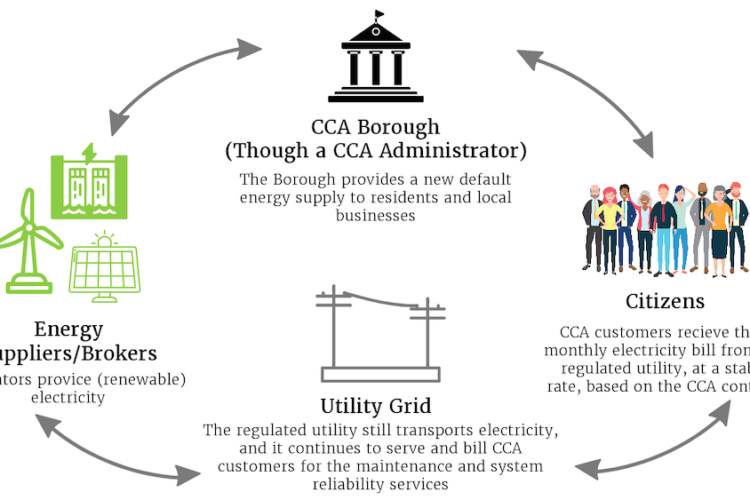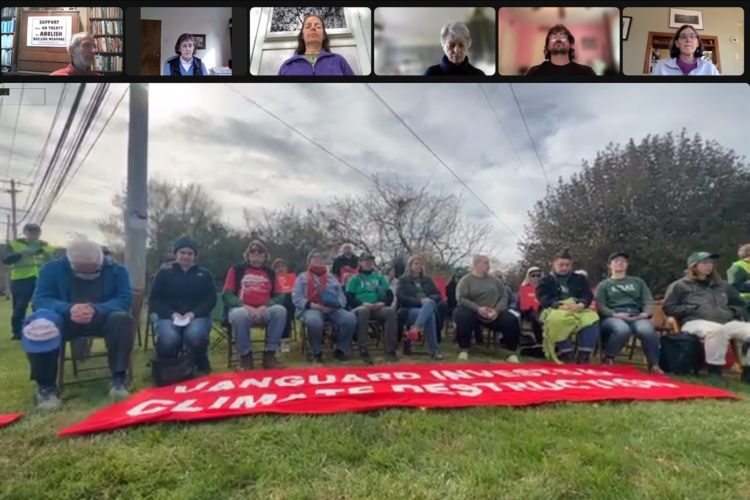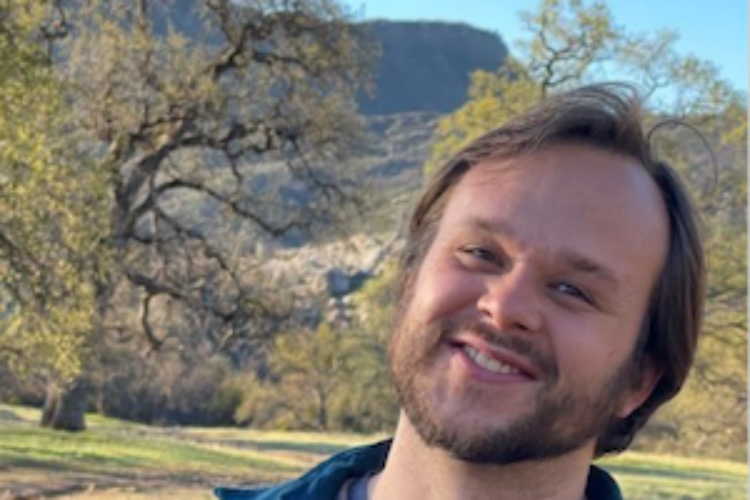Holding Space for Ecological Grief

by Hayley Hathaway.
In fall 2022, QEW launched its first 10-week course on ecological grief. The course came after organizing two popular online workshops on the topic: over 200 Friends registered from across North America. At these workshops, Friends shared about feeling alone with their emotions of dread, fear, and sadness related to climate disruption. They were seeking a place to share. At QEW, we discerned that this kind of work spoke to our strengths: bringing friends together and creating contemplative spaces to connect on deep concerns.
Gayle Matson of Chico Meeting in California and I trained with the Good Grief Network, whose 10-step model offered a graceful entry into the topic of ecological grief. Their model is inspired by the 12-Step family groups and is designed to “help folks recognize, feel, and process their heavy emotions, so that these feelings may be transformed into meaningful action.”
Thirty people applied to our course, and thirteen people of diverse ages and geographies joined. Most of the people in the group had experience with climate activism, the facilitators included. We were used to asking ourselves, “what can I do?” In this space, we focused on asking, “how do I feel?” We used check-ins, poetry, queries, music, worship sharing-style reflection, journaling, and grounding exercises each week to dig into ten themes, like “Being with Uncertainty,” “Grieving the Harm I have Caused,” and “Reinvesting in Meaningful Efforts.”
One Friend shared about their experience in the course: “It was very enriching and healing to deeply share in a sacred space our concerns, fears, sorrow, righteous anger, dreams, joy, and hope about the environment. It filled my heart with strength to hear the testimony of the inner struggle of other Friends. It made me feel less alone in this. It motivated me to share with people around me who are also suffering from all of this and who for the same reason are discouraged from making commitments, who fall into despair or worse.”
Britt Wray, author of Generation Dread, writes, “Rather than bury our heads in the sand and suppress our discomfort, we can harness and transform the distress we feel into meaningful actions and forms of connection.” Our hope was to offer that discomfort the sacred attention it deserved and build connection in the process.
Hayley Hathaway is the director of QEW and editor of this publication. Visit GoodGriefNetwork.org for more.


